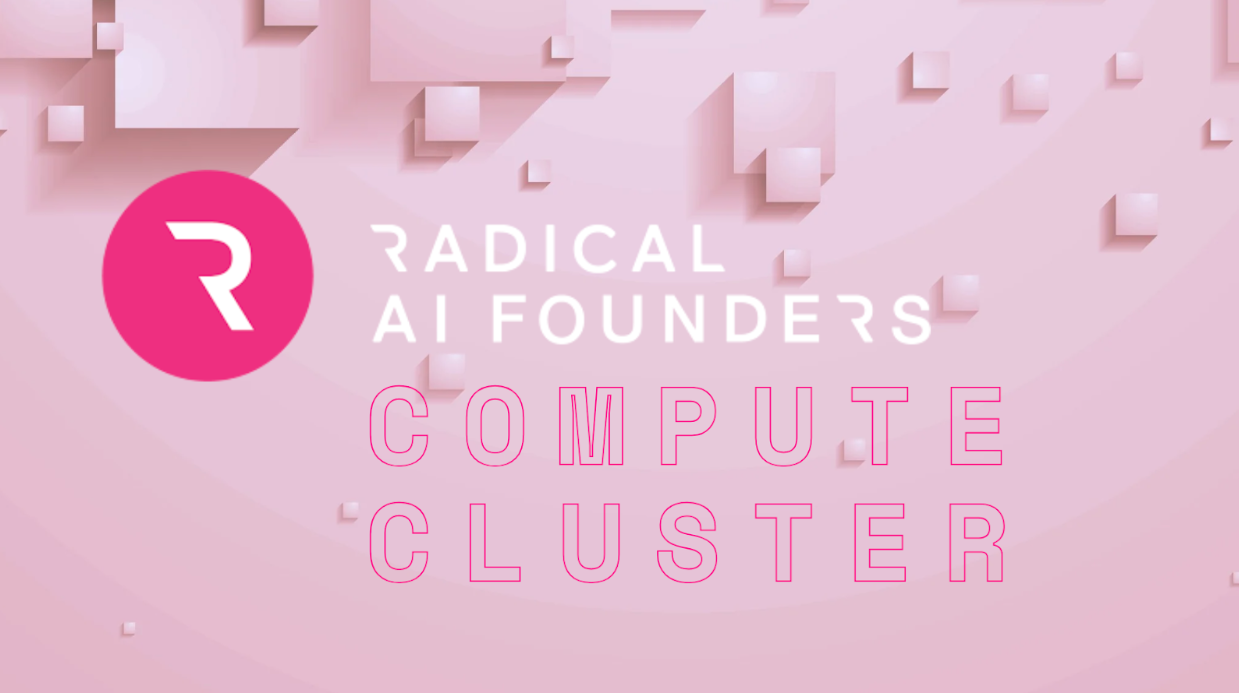We are thrilled to share that Radical led Nabla Bio’s Series A financing.
One of the next great frontiers for generative AI and large language models is biology. Biology is a learnable, programmable, in some ways even digital system.
Nowhere is this more evident than with proteins, which are involved in virtually every important activity that happens inside every living thing. Just as large language models trained on English words are able to master natural language, LLMs trained on protein sequences have demonstrated an astonishing ability to intuit the intricacies of a protein’s structure and function: in other words, to learn the language of proteins.
Nabla’s founding team, which spun out of George Church’s lab at Harvard, pioneered the field of AI-powered protein design. The company’s primary focus today is designing antibody therapeutics, one of the largest and most lucrative therapeutic modalities. By combining cutting-edge AI with novel wet lab technologies, Nabla is developing new drugs that can hit important targets in the human body that were previously considered undruggable—the “holy grail” of protein drug development.
Nabla has achieved remarkable commercial validation for a company at its stage, a testament to the game-changing technology it has developed. Nabla recently announced significant deals with three of the world’s largest pharmaceutical companies: AstraZeneca, Bristol Myers Squibb and Takeda.
We are excited and privileged to partner with the world-class team at Nabla Bio as they apply AI to transform the life sciences and tackle some of humanity’s most serious illnesses.
AI News This Week
-
Nvidia’s rivals take aim at its software dominance (Financial Times)
Technology companies including Meta, Microsoft, and Google are backing OpenAI’s Triton software, which aims to broaden the use of AI chips beyond Nvidia’s exclusive Cuda platform. This initiative poses a challenge to Nvidia’s market dominance, which is bolstered by its robust, user-friendly software ecosystem. David Katz from Radical Ventures is quoted explaining Nvidia’s comprehensive software setup, which simplifies complex tasks and has attracted a large and loyal user base over the years. Additionally, Gennady Pekhimenko, CEO and Co-Founder of Radical Ventures’ portfolio company CentML, points out that Nvidia’s primary edge lies in its software capabilities. While other companies may rival Nvidia’s hardware, the exceptional support provided by Nvidia’s software continues to be a pivotal advantage. This situation underscores the significant challenges Nvidia’s rivals encounter in attempting to compete with its deep hardware-software integration.
-
AI’s black boxes just got a little less mysterious (New York Times)
As the European Union member states gave final agreement to the world’s first major law for regulating AI last Tuesday, institutions around the world race to introduce curbs for the technology. Today’s advanced AI systems can be enigmatic even to their creators. These models learn autonomously from vast data sets to recognize language patterns and make predictions, sometimes without clear oversight on their internal processes. This opacity makes it difficult to troubleshoot errors or understand decision-making, raising concerns about potential misuse for creating bioweapons or spreading misinformation. Recent efforts are pushing forward our ability to unravel these complexities and derisk using these systems.
-
ASML and TSMC can disable chip machines if China invades Taiwan (Bloomberg)
ASML Holding NV and Taiwan Semiconductor Manufacturing Co. have ways to disable the world’s most sophisticated chipmaking machines in the event that China invades Taiwan, according to people familiar with the matter. Officials from the US government have privately expressed concerns to both their Dutch and Taiwanese counterparts about what happens if Chinese aggression escalates into an attack on the island responsible for producing the vast majority of the world’s advanced semiconductors.
-
AI Revolution: Shaping Canada’s future growth (The Logic)
Canada has been a driving force in AI, leading in the technology’s research and development—but how quickly will Canadian businesses adopt it? There is massive potential for AI to boost Canadian productivity and shape the economy’s future growth. Martin Kon, President and COO of Radical Ventures portfolio company Cohere discussed how Canada can leverage its lead in developing AI technologies.
-
Cohere launches open weights AI model Aya 23 with support for nearly two dozen languages (VentureBeat)
Cohere for AI has unveiled Aya 23, a sophisticated multilingual language model available in 8 billion and 35 billion parameter versions. This release is part of the Aya initiative, aimed at enhancing AI capabilities across 23 languages including Arabic, Chinese, and English. Unlike its predecessor, Aya 101, which supported 101 languages but diluted its capacity, Aya 23 focuses more resources on fewer languages to improve accuracy and response quality. The model’s weights are open-sourced, enabling researchers to adapt it to specific needs, although it stops short of providing open access to its training data and full architecture. Aya 23 has demonstrated significant performance enhancements over Aya 101 and competitors like Google’s Gemma, marking a strategic advance in the balance between language coverage breadth and depth in AI language models.
Radical Reads is edited by Ebin Tomy (Analyst, Radical Ventures)





